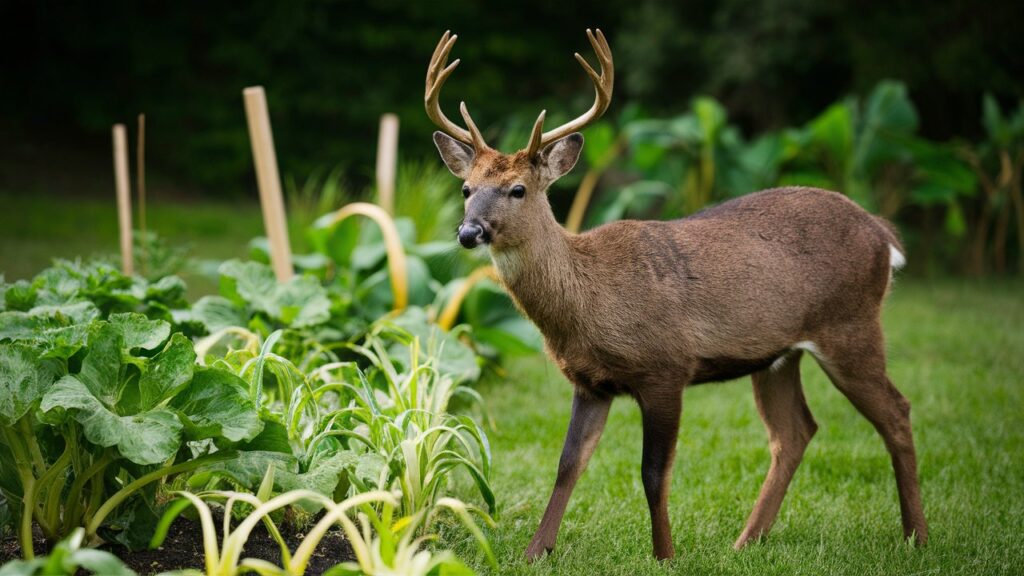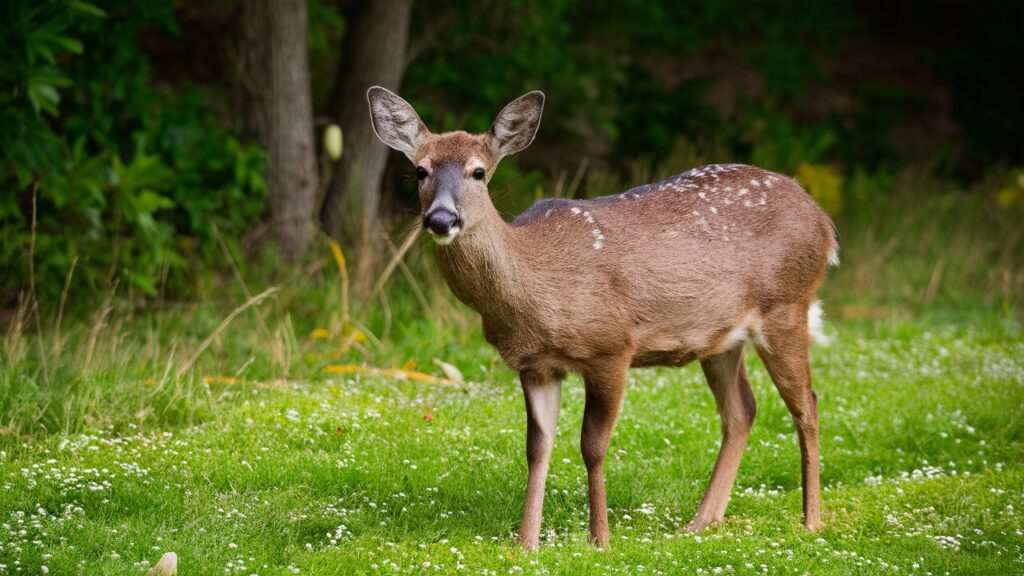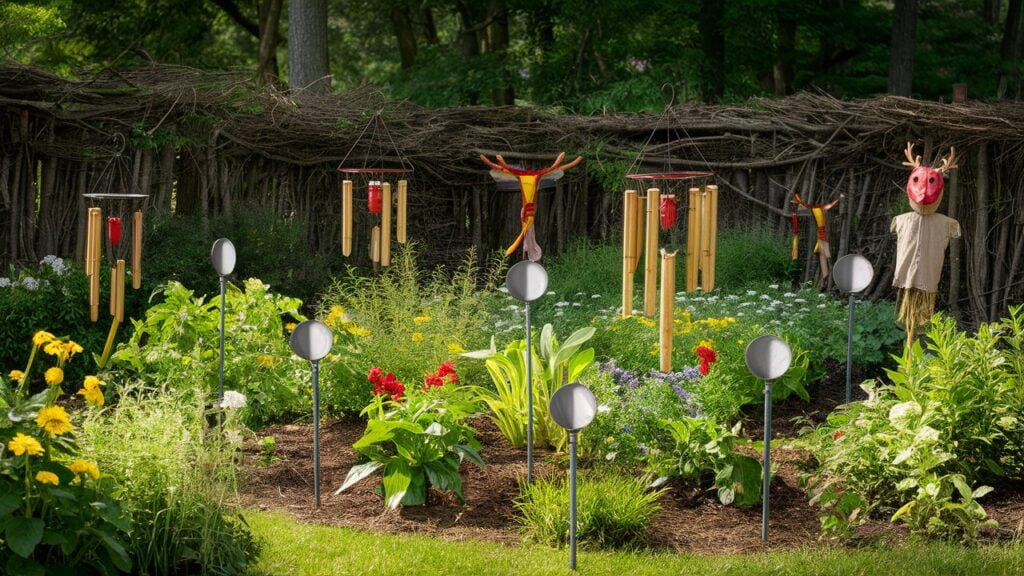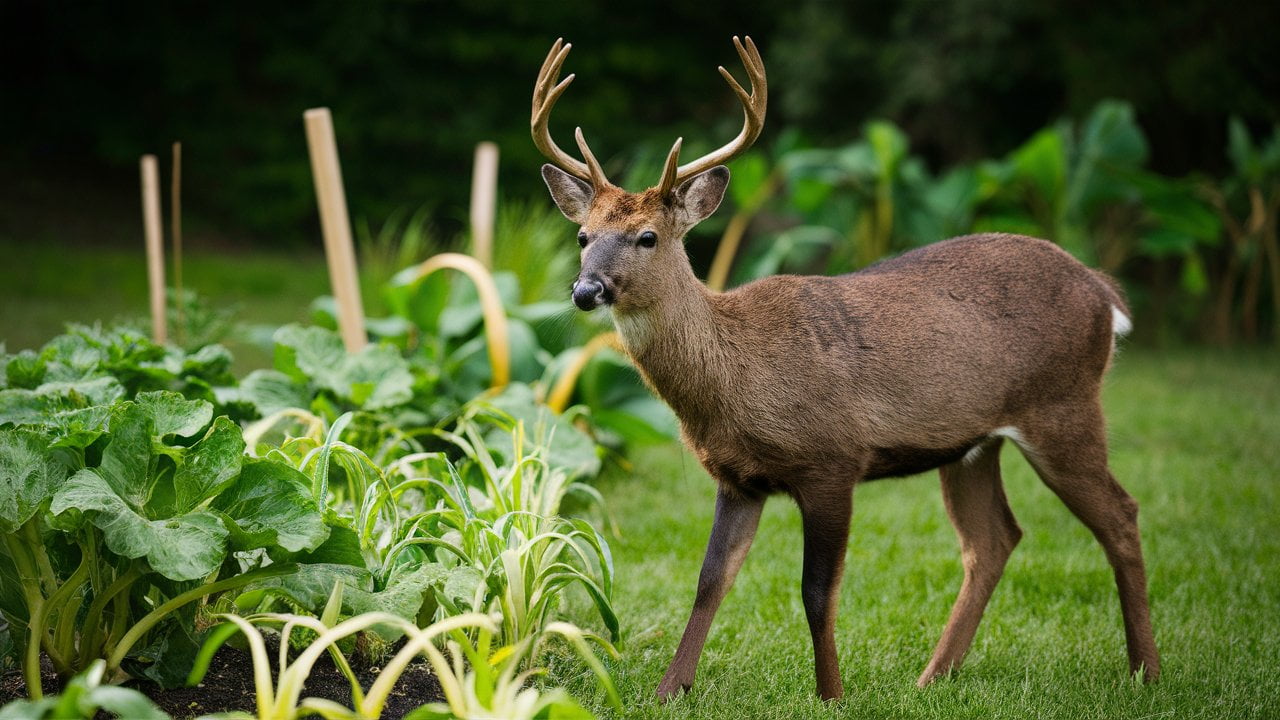Effective Strategies for a Deer-Proof Garden and plants that will protect your garden from deer

Table of Contents
Maintaining a beautiful and productive garden can be challenging when deer frequently invade your space, turning your hard work into their personal buffet. Understanding how to keep deer away from the garden is crucial for preserving your plants and ensuring your garden thrives. In this comprehensive guide, we’ll explore effective methods and strategies that will show you how to keep deer away from the garden naturally and humanely. Whether you’re a seasoned gardener or just starting, these tips will help you protect your garden and learn how to keep deer away from the garden once and for all.
How to Keep Deer Away from the Garden
Deer are undeniably majestic creatures, but their presence in your garden can be more damaging than delightful. They are notorious for feasting on garden plants, leaving behind a trail of devastation. Fortunately, there are effective strategies to keep these unwelcome visitors at bay. This comprehensive guide will explore various methods to deter deer from your garden, including plant choices, fencing, and additional deterrents, all while adhering to SEO best practices.
Understanding Deer Behavior
Why Deer Target Your Garden

Deer are primarily herbivores, consuming a variety of plant species. Their diet includes many garden plants, making your garden an attractive feeding ground. Understanding how to keep deer away from the garden is crucial because, with their strong sense of smell and the ability to consume up to 8 pounds of vegetation daily, deer are naturally drawn to gardens that offer a feast. Their natural habitats often overlap with residential areas, particularly where forests meet open spaces, making it essential to know how to keep deer away from the garden. Additionally, deer are most active during dawn and dusk, making these times crucial for implementing your deterrence strategies.
Top Plants to Keep Deer Out of the Garden
Selecting Deer-Resistant Plants
Choosing the right plants can be one of the simplest yet most effective methods for how to keep deer away from the garden. Deer have preferences for certain scents and tastes, which you can leverage to your advantage.
- Lavender: This fragrant herb is a powerful deterrent due to its strong smell. Deer find lavender overwhelming and are less likely to venture into areas where it is planted. Lavender also enhances the aesthetic appeal of your garden.
- Giant Marigolds: Known for their potent scent, giant marigolds are highly effective at keeping deer and other pests away. Planting them along garden borders can create a natural barrier.
- Yarrow: This plant is disliked by deer because of its bitter taste and textured leaves. Incorporating yarrow into your garden can help create a natural deterrent.
- Catmint: A member of the mint family, catmint has a strong aroma that repels deer. It is also low-maintenance and thrives in sunny conditions.
- Hyssop: With its strong fragrance and height, hyssop can act as both a visual and olfactory barrier to deer.
- Russian Sage: Similar to catmint, Russian sage features a pungent smell and attractive flowers, making it both deer-resistant and visually appealing.
- Dill: This aromatic herb is effective at keeping deer at bay while also being a useful addition to your kitchen.
- Salvias: Another mint family member, salvias have a scent that deer dislike. They are also beneficial for attracting pollinators like bees and butterflies.
- Poppies: Deer avoid poppies due to their taste and texture. Including them in your garden can add vibrant colors and deter deer.
- Daffodils: These spring-blooming flowers are toxic to deer, making them a great choice for early-season protection.
Fencing: The Best Way to Keep Deer Out of Your Garden
Effective Fencing Solutions
While plants can deter deer, fencing is often the most reliable method for keeping them out of your garden. Considering deer’s jumping abilities, it’s important to choose a fence that is designed to effectively discourage them.
- Tall Fences: Deer can jump over fences less than 8 feet high. To ensure maximum protection, install a fence that is at least 8 feet tall. This height is generally sufficient to prevent deer from attempting to jump over.
- Electric Fencing: Electric fences deliver a mild shock that deters deer without harming them. Ensure the fence is properly installed and maintained, and place warning signs to alert people to the electric current.
- Stockade Fences: These solid, tall fences offer privacy and protection. Since deer cannot see through them, they are less likely to attempt jumping over, as they cannot see where they would land.
- Double Fencing: Using two fences spaced a few feet apart can confuse deer due to their poor depth perception. This technique can make it more difficult for them to navigate the barrier.
- Chicken Wire and Plastic Netting: For smaller gardens, chicken wire or UV-protected plastic netting can protect individual plants or sections of the garden. These barriers are less obtrusive and can be customized to fit your garden layout.
- Rocky Borders: Large rocks placed around your garden bed can deter deer, as they find the uneven surface uncomfortable to walk on.
- Fishing Line or String: Creating a zig-zag pattern with fishing line or string around your garden can act as a psychological barrier, deterring deer from jumping over.

Additional Deer Deterrents
Using Scent, Sound, and Visual Deterrents
In addition to plants and fencing, other deterrents can help keep deer away. These methods appeal to the natural instincts of deer and can be highly effective when used in combination.
- Repellent Sprays: Commercial deer repellents, such as Liquid Fence or Deer Off, use strong scents to keep deer away. These sprays often contain ingredients like rotten eggs or essential oils and need to be reapplied after rain.
- Scent Deterrents: Deer have a highly developed sense of smell. Utilize hot pepper spray, ammonia-soaked rags, or bars of soap (like Irish Spring) around your garden to keep them at bay.
- Predator Urine: Applying coyote or fox urine near garden entry points can simulate the presence of predators and scare deer away.
- Motion-Activated Sprinklers: Devices like the Scarecrow motion-activated sprinkler can startle deer with a burst of water when they approach, teaching them to avoid your garden.
- Wind Chimes and Reflective Objects: Deer are skittish and can be deterred by sudden noises or movements. Wind chimes, reflective tape, or aluminum foil strips can create an unsettling environment for them.
- Guard Dogs: Allowing a dog to roam your garden can be an effective deterrent, as deer are naturally afraid of predators.
- Lighting: Installing motion-activated lights around your garden can deter deer, especially during dawn and dusk when they are most active.
Strategic Garden Design
Designing with Deer Deterrence in Mind
Incorporating deer deterrence into your garden design can significantly reduce the likelihood of an intrusion.
- Layered Planting: Create layers of plants with varying heights, placing deer-resistant plants on the outer layers. This can make it more challenging for deer to access more vulnerable plants.
- Barrier Plants: Use plants like lavender, yarrow, and marigolds to form a natural barrier around your garden. These plants can protect more delicate plants within.
- Raised Beds: Elevated garden beds make it more difficult for deer to reach your plants, especially when combined with other deterrents like fencing or netting.
Maintenance and Monitoring
Keeping Your Garden Deer-Free
Regular maintenance is essential to ensure that your deer deterrence strategies remain effective.
- Reapply Repellents: Natural repellents may need reapplication, particularly after rain. Regularly check your garden and refresh deterrents as needed.
- Move Deterrents: Deer can become accustomed to static deterrents. Change the location of scare devices, sprinklers, or lights periodically to maintain their effectiveness.
- Inspect Fences: Regularly inspect fences to ensure they remain intact and at the proper height. Check for any gaps or weak spots that deer could exploit.
- Adapt to Changes: Monitor your garden for new signs of deer activity and adjust your deterrents accordingly. Deer behavior can vary based on food availability and seasonal changes.
Conclusion
Keeping deer out of your garden involves a combination of strategies, including selecting deer-resistant plants, using effective fencing, and employing additional deterrents. By understanding deer behavior and implementing a comprehensive approach, you can protect your garden from these persistent visitors. Regular maintenance and vigilance are crucial for maintaining a deer-free garden. With the right mix of techniques, you can enjoy a thriving garden without the worry of deer damage.

